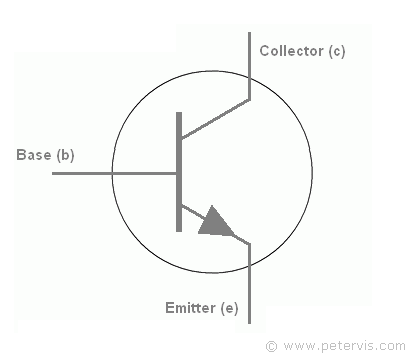< Video and base of discussion
In life, we enjoy the simple things. I usually like complex things made plain and easily digestible. I'm sure anyone about to research something prefers it This video starts out just like that. It mentions how the three main factors of human technology have been our brains, fire and sharp sticks (Information/processing power, energy and weapons respectively). I would agree that our technology has mainly been about this, but there are quite a few other equally important parts to human tech (Economics is half a social concept and half material, industry/production,) aside these three things. Rather than be taken as a total summary of our technology, I would prefer the statement be taken as a heavily general and simple version of some key aspects to human technology. 

Anyway, the video then goes into how our brains have been exponentially improving over the last century. Namely, computers. Computer software runs on something called bits. Ones and zeros or binary, among other names. This coupled with transistors, an on/off switch, computational processes are born. With little patterns of transistors, you can create the part of a binary code. Put a bunch of the patterns together and you've got a process. Over the years these transistors have been getting smaller and smaller, meaning that they can form bigger and more complicated patterns without taking up too much space. Sounds wonderful, right? Well, there is a problem... < (Red = Electricity flowing. Pink means it's turned on. Gray means its off. This is a transistor.)
< (Red = Electricity flowing. Pink means it's turned on. Gray means its off. This is a transistor.)
Transistors are getting too small. They're reaching a size so tiny that the electrons running through them (electricity) could potentially just bypass them through quantum tunneling. Only possible because the transistor would be only slightly bigger than said electron. That's where quantum computers come in! Quantum computers don't use bits, but Qubits. Bits are made of electrons, but Qubits are made of photons. Basically, light! Whether it's a one or a zero depends on it's polarization. Even beyond that, simply put: Qubits have a thing called superposition. It means that they can be ones and zeroes at the same time until measured. A few Quantum Gateways (calibrations for these Qubits as they go through) to create a pattern, and you've got yourself a pattern that can do ^2 of what a normal bits pattern can! That's because both the input and result can be both ones and zeroes, meaning the pattern can have a TON more outputs (functions) than a normal computer's pattern. It's complicated, I know. But simply put: It's a computer that can square root the amount of material it takes to process something on a normal computer. That, and it can calculate/consider everything it has all at once at the same time (Like searching for something in a list). Godly.
The video then goes into the possible uses for this sort of technology. One is running databases, with a quantum computer being able to find and match data instantly. Extremely useful for any company, business or department. Another is hacking into accounts, since a quantum computer can easily decrypt the encryptions our accounts use. Personally, I believe that these two capabilities will have to be made up for with even tougher encryption before such technology is made widely available to the public. However, with how long it would take to make quantum computers a relatively cheap tool, the tougher encryption will most likely arrive before one can buy a quantum computer from their local Best Buy. But you never know...
Nonetheless, the number of benefits a quantum computer brings to the table are quite innumerable. Simulations of anything would become far, far more easier to process and in turn will make them more advanced. This would spell a boom of innovation and discovery in all scientific and medical fields. Many lives could be potentially improved and/or saved by these new simulations and the discoveries made using them. I am quite excited for that part, as I would love to witness an era of innovation never previously matched in human history. Maybe that's a bit too grand, but it nonetheless would be a spectacular thing to witness.

All in all, I would say that it's another outstanding video by Kurzgesagt. They always outdo themselves. In conclusion, I will say that while the technology of quantum computers has many potentially incredible harms, it has an equal if not greater number of positives. It is certainly a technology worth risking it for, so long as we take necessary precautions first :D
Is there anything you guys think I missed, or stuff I'm wrong on? What would you do with a quantum computer? I'd love to discuss. Please, don't be shy! And a good day to all of you.
 < (Red = Electricity flowing. Pink means it's turned on. Gray means its off. This is a transistor.)
< (Red = Electricity flowing. Pink means it's turned on. Gray means its off. This is a transistor.)Transistors are getting too small. They're reaching a size so tiny that the electrons running through them (electricity) could potentially just bypass them through quantum tunneling. Only possible because the transistor would be only slightly bigger than said electron. That's where quantum computers come in! Quantum computers don't use bits, but Qubits. Bits are made of electrons, but Qubits are made of photons. Basically, light! Whether it's a one or a zero depends on it's polarization. Even beyond that, simply put: Qubits have a thing called superposition. It means that they can be ones and zeroes at the same time until measured. A few Quantum Gateways (calibrations for these Qubits as they go through) to create a pattern, and you've got yourself a pattern that can do ^2 of what a normal bits pattern can! That's because both the input and result can be both ones and zeroes, meaning the pattern can have a TON more outputs (functions) than a normal computer's pattern. It's complicated, I know. But simply put: It's a computer that can square root the amount of material it takes to process something on a normal computer. That, and it can calculate/consider everything it has all at once at the same time (Like searching for something in a list). Godly.

The video then goes into the possible uses for this sort of technology. One is running databases, with a quantum computer being able to find and match data instantly. Extremely useful for any company, business or department. Another is hacking into accounts, since a quantum computer can easily decrypt the encryptions our accounts use. Personally, I believe that these two capabilities will have to be made up for with even tougher encryption before such technology is made widely available to the public. However, with how long it would take to make quantum computers a relatively cheap tool, the tougher encryption will most likely arrive before one can buy a quantum computer from their local Best Buy. But you never know...
Nonetheless, the number of benefits a quantum computer brings to the table are quite innumerable. Simulations of anything would become far, far more easier to process and in turn will make them more advanced. This would spell a boom of innovation and discovery in all scientific and medical fields. Many lives could be potentially improved and/or saved by these new simulations and the discoveries made using them. I am quite excited for that part, as I would love to witness an era of innovation never previously matched in human history. Maybe that's a bit too grand, but it nonetheless would be a spectacular thing to witness.

All in all, I would say that it's another outstanding video by Kurzgesagt. They always outdo themselves. In conclusion, I will say that while the technology of quantum computers has many potentially incredible harms, it has an equal if not greater number of positives. It is certainly a technology worth risking it for, so long as we take necessary precautions first :D
Is there anything you guys think I missed, or stuff I'm wrong on? What would you do with a quantum computer? I'd love to discuss. Please, don't be shy! And a good day to all of you.

Comments
Post a Comment